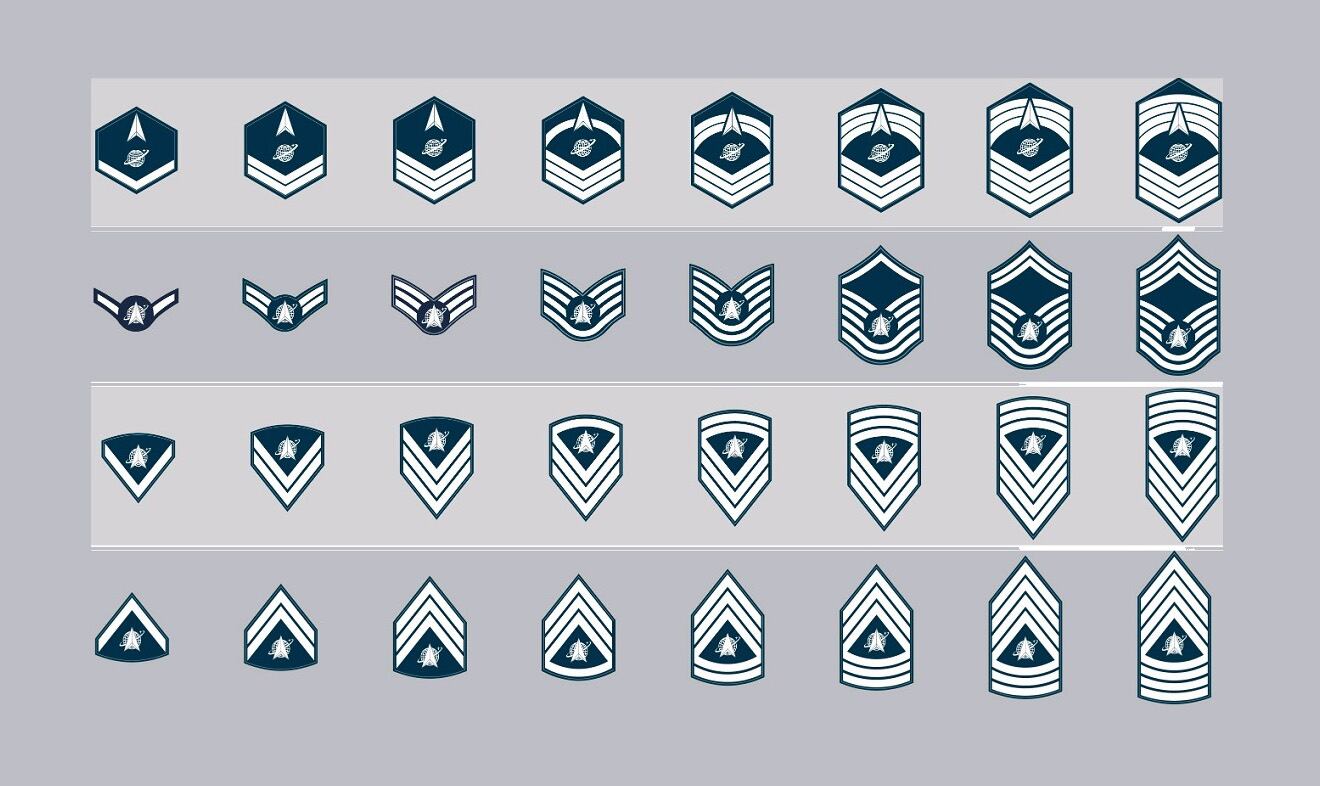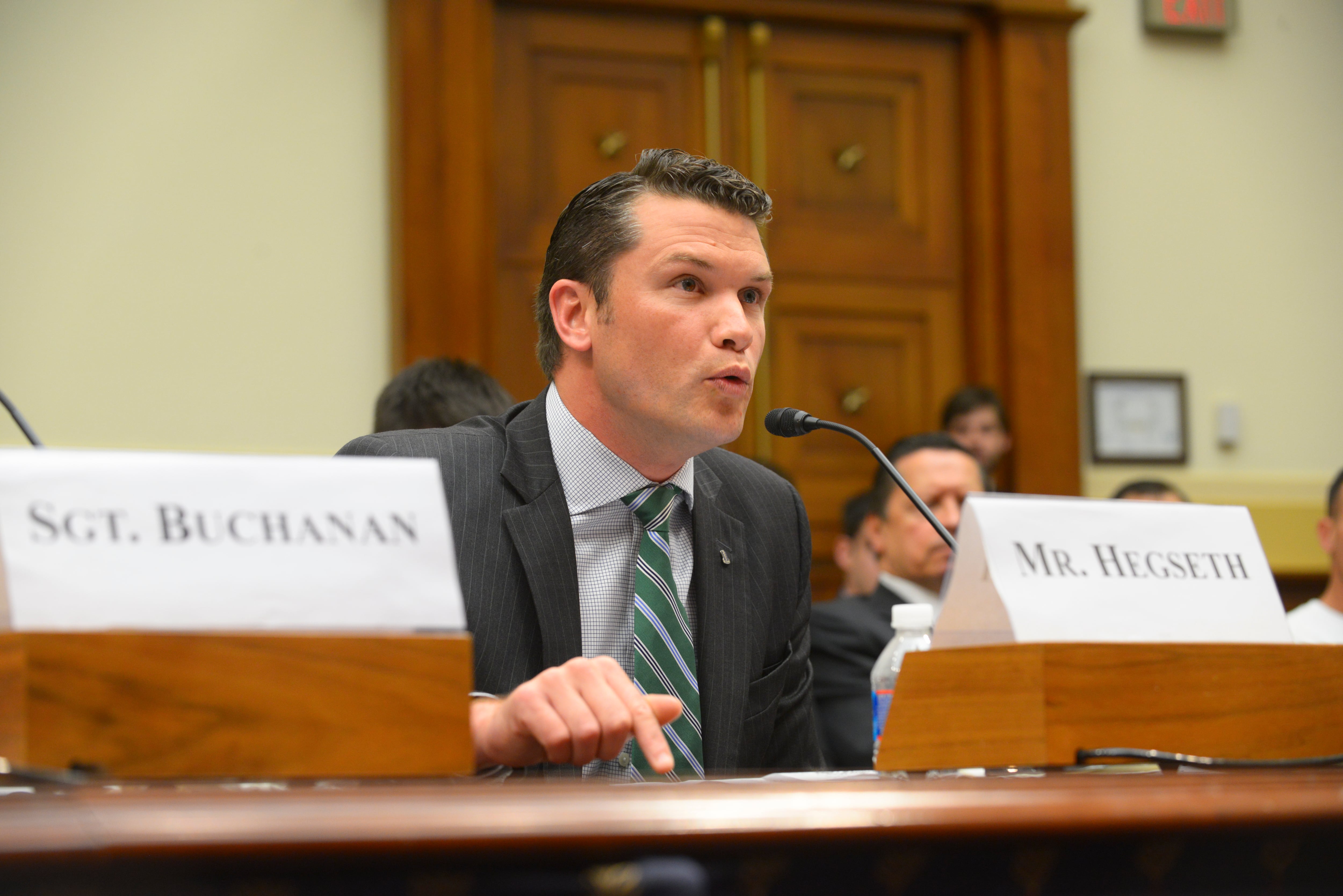The Space Force this spring became the first military service to vet certain enlisted members for promotion using selection boards rather than tests, hoping the approach will prize thinking over memorization and lead to a better-rounded enlisted force.
Fifty-two guardians were tapped for promotion, including 26 who will become technical sergeants (E-6), 22 to become master sergeants (E-7), and four who made senior master sergeant (E-8), the service said May 27.
The Space Force tapped about one-quarter of the 102 guardians eligible for promotion to E-6, about 22 percent of the 98 guardians eligible for E-7, and just over 6 percent of the 64 NCOs eligible for E-8, according to the Air Force Personnel Center.
The future master sergeants have spent nearly 19 years in uniform, followed by the technical sergeants at more than 14 years, and sergeants at almost eight years.
RELATED

This is the first time a military branch has used promotion boards to consider E-6 candidates, though boards are already in effect for others like Navy E-7s.
In its first try with enlisted promotion boards, only those in the space systems operations field faced a selection panel, while others in careers like intelligence and cyber operations continued taking promotion tests, Chief Master Sergeant of the Space Force Roger Towberman told Air Force Times on May 28. Guardians in fields other than space systems ops will use promotion boards later on.
“We eliminate testing, which gives time back,” instead of studying for and scoring the exams, Towberman said. It also aims to consider candidates as human beings rather than as test scores. Sergeants are temporarily still being tested on knowledge of skills in their career field, though the results won’t affect their promotion prospects.
That skills test will be completely gone next year as the Space Force transitions to promotion boards for grades E-5 through E-9, Towberman said.
Guardians have complained that the tests are stressful and take away time that could be spent with friends, family or their day jobs. Towberman believes the time is ripe for a shift.
“Knowledge is probably not the coin of the realm anymore compared to thinking,” he said. “You can look up stuff pretty easily these days. The power is with the people that, when given all the data, know how to analyze it, know how to think critically and know how to imagine different ways to connect it.”
In 2019, before the Space Force was created, the Air Force canceled its fitness and specialty knowledge tests needed for promotion to E-7 through E-9 and turned to senior noncommissioned officer boards.
RELATED

The Air Force has kicked around the idea of boarding younger enlisted airmen before, but no change has come to fruition. Despite some criticism that the subjectivity of promotion boards can lead to a less-inclusive workforce, Space Force leadership thinks they will help seek out diverse perspectives.
USSF officials must also decide how they want to account for differences in each service’s record-keeping during the promotion process, to ensure soldiers and sailors are on equal footing as airmen and guardians as they start to transfer into the service.
Space Force plans to use algorithms to measure guardians’ personality or performance in ways that a regular review may not, Towberman said last year. He also sees an opportunity to pivot to “assignment boards” instead as another way to help service members advance.
“If you care about those people that fell short of the promotion line, and if you’re institutionally obligated to care for them and develop them, then the assignments they get in their next move are really the most important,” he added last September.
The top enlisted leader is mulling ways to measure less quantitative factors like teamwork or connection as well as mission prowess, in order to promote the best leaders possible. Space Force promotions will evolve over the next few years, Towberman said, to the point that the process might not be recognizable as soon as 2023.
That goes hand-in-hand with the service’s forthcoming human capital strategy and its plan for a combined active-duty and reserve force that could offer more work-life balance and flexibility than existing forms of military employment.
“I hope that there’s so much flexibility and agility in our system when it’s done … that there wouldn’t even be a name for something like this,” he said. “Everybody is doing something that’s tailored to them at all times.”
Rachel Cohen is the editor of Air Force Times. She joined the publication as its senior reporter in March 2021. Her work has appeared in the Washington Post, the Frederick News-Post (Md.), Air and Space Forces Magazine, Inside Defense, Inside Health Policy and elsewhere.





